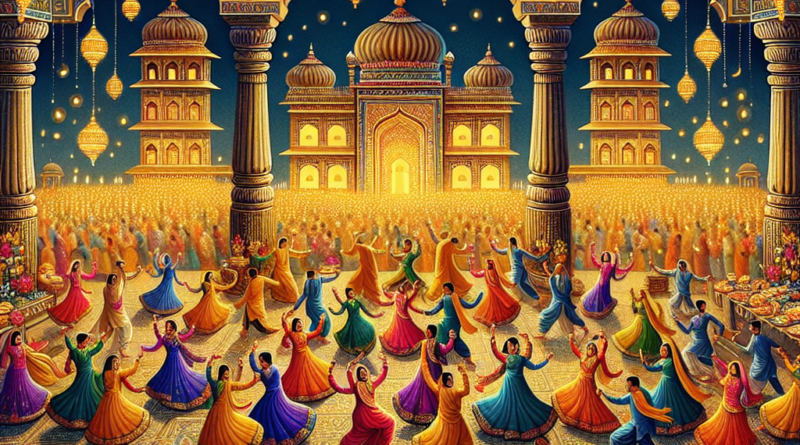Vibrant Celebrations: Hindu Festivals in Colorful Tradition
Title: Celebrating Hindu Festivals: Exploring the Rich Cultural Significance in Rajput Tradition
Introduction:
Hindu festivals hold a special place in the hearts of millions around the world, with their vibrant colors, elaborate rituals, and deep spiritual significance. In the context of Rajput culture, these festivals take on a unique flavor, blending ancient traditions with the valor and grandeur of the Rajput warrior clans. This article delves into the historical context and contemporary relevance of Hindu festivals in the context of Rajput culture, highlighting their cultural significance and enduring legacy.
Historical Context:
The Rajputs, known for their valor, chivalry, and loyalty, have a rich history that is intertwined with Hindu traditions and festivals. Many Hindu festivals have their origins in ancient texts like the Vedas, Puranas, and epics like the Ramayana and Mahabharata, which are deeply revered by the Rajputs. Festivals like Diwali, Holi, and Navratri have been celebrated for centuries in Rajputana, the historical region of the Rajputs, as a way to honor gods and goddesses, mark important events, and strengthen social bonds within the community.
Diwali, the festival of lights, holds a special significance for the Rajputs as it commemorates the return of Lord Rama to Ayodhya after defeating Ravana. For the Rajputs, Diwali symbolizes the triumph of good over evil and the importance of upholding dharma (righteousness) in the face of adversity. The lighting of diyas, bursting of firecrackers, and sharing of sweets are all integral parts of Diwali celebrations in Rajput households, reflecting the spirit of joy and unity.
Holi, the festival of colors, is another important festival for the Rajputs, who see it as a time to celebrate the arrival of spring and the victory of devotion over ego. The playful throwing of colored powders and water during Holi symbolizes the breaking down of social barriers and the fostering of camaraderie among people of all backgrounds. Rajput warriors were known to participate in grand Holi celebrations, showcasing their strength and agility through traditional folk dances and martial arts displays.
Navratri, the nine-night festival dedicated to the worship of Goddess Durga, holds a special place in Rajput culture as a time to honor the divine feminine energy and seek blessings for strength and protection. During Navratri, Rajputs perform traditional Garba and Dandiya Raas dances, showcasing their grace and skill while paying homage to the warrior spirit of the goddess.
Contemporary Relevance:
In modern times, Hindu festivals continue to play a vital role in Rajput cultural life, serving as occasions for community bonding, spiritual renewal, and the preservation of tradition. While the essence of these festivals remains unchanged, contemporary celebrations often incorporate new elements like social media campaigns, charity drives, and eco-friendly practices to adapt to changing times.
For example, during Diwali, many Rajput families now opt for eco-friendly diyas and firecrackers to reduce environmental impact and promote sustainability. Similarly, during Holi, there is a growing emphasis on using organic colors and conserving water resources to ensure a more eco-conscious celebration. These initiatives reflect the Rajput community’s commitment to preserving the cultural heritage of Hindu festivals while embracing modern values of environmental stewardship and social responsibility.
Moreover, Hindu festivals serve as a platform for Rajputs to showcase their cultural heritage to the world through events like the Rajasthan International Folk Festival (RIFF) and the Jaipur Literature Festival. These festivals attract artists, scholars, and enthusiasts from around the globe, providing a platform to exchange ideas, promote cultural dialogue, and celebrate the rich tapestry of Rajputana’s traditions.
Conclusion:
In conclusion, Hindu festivals hold a sacred place in Rajput culture, embodying the values of courage, loyalty, and devotion that have defined the Rajput warrior clans for centuries. By celebrating these festivals with reverence and joy, the Rajputs continue to uphold their cultural legacy and forge bonds of solidarity within their community. As Hindu festivals evolve to meet the challenges of the modern world, the Rajputs remain steadfast in their commitment to preserving their heritage and sharing it with the world, ensuring that the flame of tradition continues to burn brightly for generations to come.

